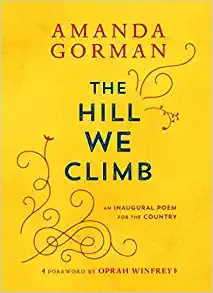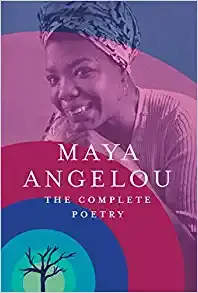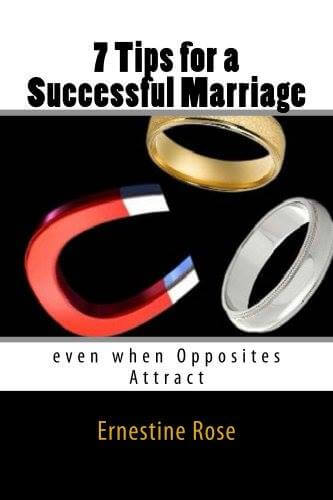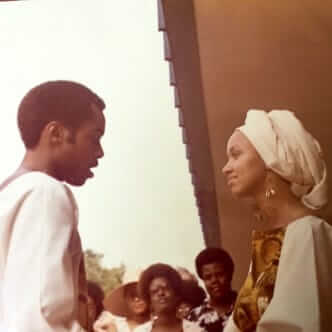Rose's Bookshelf Number Six
06/17/2021
The first four books were recommended in April, National Poetry Month, so I chose to cover poetry books, a genre I had neglected.
- THE HILL WE CLIMB by Amanda Gorman
We were so taken by her performance on Inauguration Day, we missed some of the message! So let's revisit the text!
On January 20, 2021, Amanda Gorman became the sixth and youngest poet to deliver a poetry reading at a presidential inauguration. Taking the stage after the 46th president of the United States, Joe Biden, Gorman captivated the nation and brought hope to viewers around the globe with her call for unity and healing. Her poem “The Hill We Climb: An Inaugural Poem for the Country” can now be cherished in this special gift edition, perfect for any reader looking for some inspiration. Including an enduring foreword by Oprah Winfrey, this remarkable keepsake celebrates the promise of America and affirms the power of poetry.
We will rise from the sunbaked south.
We will rebuild, reconcile and recover.
And every known nook of our nation and
every corner called our country,
our people diverse and beautiful will emerge,
battered and beautiful.
When day comes we step out of the shade,
aflame and unafraid,
the new dawn blooms as we free it.
For there is always light,
if only we're brave enough to see it.
If only we're brave enough to be it.

52. THE COLLECTED POETRY OF NIKKI GIOVANNI (1968-1998)

This book includes her first seven volumes of poetry from her early years, 1967 to 1983: BLACK FEELING BLACK TALK, BACK JUDGEMENT, RE: CREATION, MY HOUSE, THE WOMEN AND THE MEN, COTTON CANDY ON A RAINY DAY & THOSE WHO RIDE THE NIGHT WINDS. A timeless classic, it is both a reflection of the changes in her own life and an evocation of a nation’s past and its present.
This collection of poetry is a historical timeline of the Black Arts Movement of the 1960’s. Its lyrical content speaks to the conscience of a culture deeply rooted in revolution. It tells the notable struggle of a nation divided by civil rights. “The source of my work has always been black Americans. I am absolutely fascinated by what we are, and how we have conducted our business more than three hundred years in America.” (Giovanni, 2007). This is a great book for teachers of humanities to use with students as it covers both English Language Arts and history. Highly recommend.
--Jamila Abdulrashid, Goodreads
53. THE COLLECTED POEMS OF LANGSTON HUGHES
Langston Hughes, "Father of the Harlem Renaissance" (and in my opinion, the father of rap as well), is the author of the week. He took his poetry out of the classroom and to the streets of Harlem, reciting on corners and in clubs and bars. He wrote about everyday people, tired of working, as the struggled to survive broken hearts, poverty, and racism.
Here, for the first time, are all the poems that Langston Hughes published during his lifetime, arranged in the general order in which he wrote them. Lyrical and pungent, passionate and polemical, the result is a treasure of a book, the essential collection of a poet whose words have entered our common language.
The collection spans five decades, and is comprised of 868 poems (nearly 300 of which never before appeared in book form) with annotations by Arnold Rampersad and David Roessel. Alongside such famous works as "The Negro Speaks of Rivers" and "Montage of a Dream Deferred," THE COLLECTED POEMS includes Hughes's lesser-known verse for children; topical poems distributed through the Associated Negro Press; and poems such as "Goodbye Christ" that were once suppressed.

54. MAYA ANGELOU: THE COMPLETE POETRY

Throughout her illustrious career in letters, Maya Angelou gifted and inspired the world with her words. Now the beauty and spirit of those words live on in this new and complete collection of poetry that reflects and honors the writer’s remarkable life.
Every poetic phrase, every poignant verse can be found within the pages of this sure-to-be-treasured volume—from her reflections on African American life and hardship in the compilation Just Give Me a Cool Drink of Water ’fore I Diiie (“Though there’s one thing that I cry for / I believe enough to die for / That is every man’s responsibility to man”) to her revolutionary celebrations of womanhood in the poem “Still I Rise” (“Out of the huts of history’s shame / I rise / Up from a past that’s rooted in pain / I rise”) to her “On the Pulse of Morning” tribute at President William Jefferson Clinton’s inauguration (“Lift up your eyes upon / The day breaking for you. / Give birth again / To the dream.”).
Maya Angelou: The Complete Poetry also features her final long-form poems, including “A Brave and Startling Truth,” “Amazing Peace,” “His Day Is Done,” and the honest and endearing "Mother".Timeless and prescient, this definitive compendium will warm the hearts of Maya Angelou’s most ardent admirers as it introduces new readers to the legendary poet, activist, and teacher—a phenomenal woman for the ages.
55. IT’S NOT ALL DOWNHILL FROM HERE by Terry McMillan
Named one of the best books of the year by Marie Claire and Good Housekeeping, It’s Not All Downhill from Here offers a look at life in our 60s and 70s.• “Poignant, funny and full of life, this is a balm for troubled times.”—People Magazine
NEW YORK TIMES BESTSELLER • After a sudden change of plans, a remarkable woman and her loyal group of friends try to figure out what she’s going to do with the rest of her life.
Loretha Curry’s life is full. A little crowded sometimes, but full indeed. On the eve of her sixty-eighth birthday, she has a booming beauty-supply empire, a gaggle of lifelong friends, and a husband whose moves still surprise. True, she’s carrying a few more pounds than she should be, but Loretha is not one of those women who think her best days are behind her—and she’s determined to prove wrong her mother, her twin sister, and everyone else with that outdated view of aging wrong. It’s not all downhill from here. But when an unexpected loss turns her world upside down, Loretha will have to summon all her strength, resourcefulness, and determination to keep on thriving, pursue joy, heal old wounds, and chart new paths. With a little help from her friends, of course.

56. HOW TO LOVE A JAMAICAN by Alexia Arthurs

This week's book pick" HOW TO LOVE A JAMAICAN, The Oprah Magazine “Top 15 Best of the Year” • A Well-Read Black Girl Pick
In these kaleidoscopic stories of Jamaica and its diaspora we hear many voices at once. All of them convince and sing. All of them shine.”—Zadie Smith
Tenderness and cruelty, loyalty and betrayal, ambition and regret—Alexia Arthurs navigates these tensions to extraordinary effect in her debut collection about Jamaican immigrants and their families back home. Sweeping from close-knit island communities to the streets of New York City and midwestern university towns, these stories form a portrait of a nation, a people, and a way of life.
In “Light-Skinned Girls and Kelly Rowlands,” an NYU student befriends a fellow Jamaican whose privileged West Coast upbringing has blinded her to the hard realities of race. In “Mash Up Love,” a twin’s chance sighting of his estranged brother—the prodigal son of the family—stirs up unresolved feelings of resentment. In “Bad Behavior,” a couple leave their wild teenage daughter with her grandmother in Jamaica, hoping the old ways will straighten her out. In “Mermaid River,” a Jamaican teenage boy is reunited with his mother in New York after eight years apart. In “The Ghost of Jia Yi,” a recently murdered student haunts a despairing Jamaican athlete recruited to an Iowa college. And in “Shirley from a Small Place,” a world-famous pop star retreats to her mother’s big new house in Jamaica, which still holds the power to restore something vital.
Alexia Arthurs emerges in this vibrant, lyrical, intimate collection as one of fiction’s most dynamic and essential authors.
57. Richard Wright’s NATIVE SON
Written in 1940 and set in Chicago in the 1930s, Richard Wright's powerful novel is an unsparing reflection on the poverty and feelings of hopelessness experienced by people in inner cities across the country and of what it means to be black in America.
Right from the start, Bigger Thomas had been headed for jail. It could have been for assault or petty larceny; by chance, it was for murder and rape. Native Son tells the story of this young black man caught in a downward spiral after he kills a young white woman in a brief moment of panic. While not apologizing for Bigger's crimes, Wright portrays a systemic causation behind them. Bigger's lawyer, Boris Max, makes the case that there is no escape from this destiny for his client or any other black American since they are the necessary product of the society that formed them and told them since birth who exactly they were supposed to be. This book is as relevant today with the high crime rate in our cities & the prison pipeline, as it was in 1940.
“If one had to identify the single most influential shaping force in modern Black literary history, one would probably have to point to Wright and the publication of Native Son.” – Henry Louis Gates Jr.
"No American Negro exists", James Baldwin once wrote, "who does not have his private Bigger Thomas living in his skull." Frantz Fanon discusses the feeling in his 1952 essay, L'expérience vécue du noir (The Fact of Blackness). "In the end", writes Fanon, "Bigger Thomas acts. To put an end to his tension, he acts, he responds to the world's anticipation." The book was a successful and groundbreaking best seller.
This edition—the restored text of Native Son established by the Library of America—also includes an essay by Wright titled, "How 'Bigger' was Born," along with notes on the text.

58. THE WOMEN OF BREWSTER PLACE by Gloria Naylor

In her heralded first novel, winner of the National Book Award, Gloria Naylor weaves together the stories of seven women living in Brewster Place, a bleak-inner city sanctuary, creating a powerful, moving portrait of the strengths, struggles, and hopes of black women in America. Vulnerable and resilient, openhanded and openhearted, these women forge their lives in a place that in turn threatens and protects—a common prison and a shared home. Naylor renders both loving and painful human experiences with simple eloquence and uncommon intuition. Adapted into a 1989 ABC miniseries starring Oprah Winfrey, The Women of Brewster Place is a touching and unforgettable read. Now with a foreword by Tayari Jones.
“I wanted to write a book that would reflect the diversity and the richness of the black female experience in America – and no one woman could do that for me, and no one geographical location could do that for me,” she said in an interview with the National Book Foundation. “That’s when the idea got born that Brewster Place would be a microcosm of American society, that on that street would come all of these different women, and what they would share would be that wall.”
It was made into an award-winning movie by Oprah Winfrey and a cast of greats. There is also a sequel, THE MEN OF BREWSTER PLACE, which focuses on the male characters in the novel.
“[A] shrewd and lyrical portrayal of many of the realities of black life —The New York Times Book Review
59. PARADISE by Toni Morrison
Everyone who knows me knows that Toni Morrison is my favorite author, and I've managed to insert one of her books in my recommendations every ten weeks. It's been fifteen weeks since the last one, so here is the novel that challenged me most: PARADISE. It was her first novel after winning the Nobel Prize for Literature.
“They shoot the white girl first. With the rest they can take their time.” So begins Toni Morrison’s Paradise, which opens with a horrifying scene of mass violence and chronicles its genesis in an all-black small town in rural Oklahoma. Founded by the descendants of freed slaves and survivors in exodus from a hostile world, the patriarchal community of Ruby is built on righteousness, rigidly enforced moral law, and fear. But seventeen miles away, another group of exiles has gathered in a promised land of their own. And it is upon these women in flight from death and despair that nine male citizens of Ruby will lay their pain, their terror, and their murderous rage.
In prose that soars with the rhythms, grandeur, and tragic arc of an epic poem, Toni Morrison challenges our most fiercely held beliefs as she weaves folklore and history, memory and myth into an unforgettable meditation on race, religion, gender, and a far-off past that is ever present.
“A fascinating story, wonderfully detailed. . . . The town is the stage for a profound and provocative debate.” —Los Angeles Times

60. 7 TIPS FOR A SUCCESSFUL MARRIAGE, Ernestine Rose

7 TIPS FOR A SUCCESSFUL MARRIAGE EVEN WHEN OPPOSITES ATTRACT is a contemporary relationship guide to marital conflict. The unique approach to the "opposites attract" theory offers both insight and humor in the best of the " Mars. . . and Venus" tradition. The importance of choices, communication, and compromise is a recurrent theme throughout the book. It's a "must have" for newlyweds and a " wish I'd known" for veterans who not only want to survive as a couple, but want to achieve marriage success.
From the introduction:
My husband Art and I have been married thirty-six years. The day before our wedding, one of his friends bet him fifty dollars that we wouldn't last past five years. We were too different. And we were. We're still different in more ways than I can count, but it's the differences that keep our marriage alive and interesting. But while working out those differences has been a challenge, it has also made for a glorious journey. It's those basic differences between men and women that attracted us to each other in the first place. I have come to believe that when couples have too much in common, they get bored with each other. Then they look for "interesting" outside the home. Differences force you to hone your skills: to communicate and compromise with a practiced flair. The one thing we do have in common is that we (and our love) are of utmost importance to both of us, and saving us takes top priority.
So with that in mind, I'm sharing some of our secrets to a successful marriage. I've provided seven tips. It's a manageable number. You can even focus on one every day of the week. A lot of this is common-sense advice, something we can no longer just take for granted, because everybody doesn't have common sense. Some of us let our "book learning" get in the way. We often look all over for solutions to our problems when they're really staring us in the face if we just open our eyes. Anyway, this is my advice on how to stay in the sixty percent that stay married, and avoid the forty percent who don't.
At our 30th anniversary party, my husband's friend paid up on the bet. Eleven years later, I became a widow. I am grateful for the time we had. I still have advice to share.
"Her straight talk and spot-on humor, and research into what makes us want love and then desperately search to make it last, paints a picture of what's possible after the sweetness of the wedding cake is replaced by bitter feelings." --Tamron Hall, Talk Show Host
